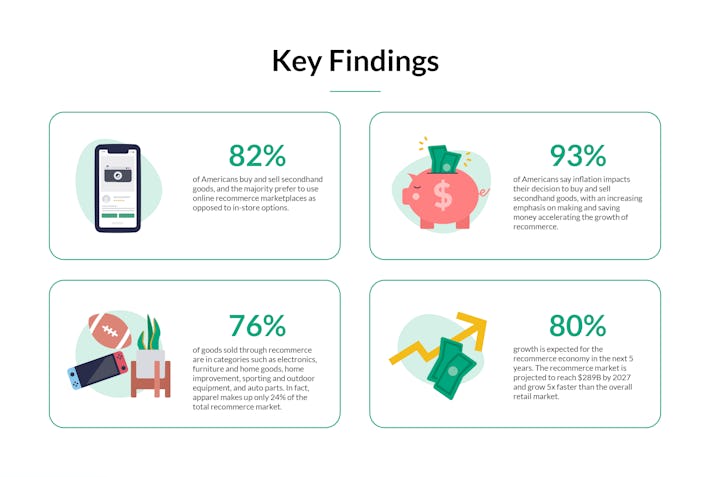Protecting Indigenous Knowledge: The Fight For Data Sovereignty

Table of Contents
The Significance of Indigenous Knowledge
Indigenous knowledge systems, accumulated over millennia, represent a deep understanding of the natural world and sustainable living. This knowledge is not merely historical; it holds immense contemporary value.
Traditional Ecological Knowledge (TEK) and its Value
Traditional Ecological Knowledge (TEK) encompasses the traditional practices, beliefs, and knowledge systems of Indigenous peoples concerning their relationship with the environment. TEK is crucial for:
- Understanding biodiversity: Indigenous communities often possess detailed knowledge of local plant and animal species, their interactions, and their ecological roles, far surpassing scientific understanding in many cases.
- Climate change adaptation: TEK offers valuable insights into adapting to climate change impacts, based on generations of experience and observation. For example, traditional farming techniques often prove more resilient to changing weather patterns.
- Sustainable resource management: Indigenous practices frequently incorporate sustainable resource management principles, ensuring the long-term health of ecosystems and the communities that depend on them.
TEK’s value extends beyond ecological benefits. It has significant economic potential in areas such as:
- Traditional medicine: Many pharmaceuticals are derived from plants used in traditional medicine, highlighting the untapped potential of Indigenous knowledge in this field.
- Sustainable agriculture: Indigenous farming techniques often demonstrate higher yields and greater resilience than modern industrial agriculture, providing valuable lessons for sustainable food production.
The economic and social value of TEK is immense and its protection is paramount for future generations.
The Threat of Knowledge Appropriation
For centuries, Indigenous knowledge has been exploited by external entities. This appropriation takes many forms, including:
- Biopiracy: The unauthorized appropriation of biological resources and associated traditional knowledge for commercial purposes, often without benefit-sharing with the Indigenous communities. Companies might patent traditional medicines or crops without acknowledging or compensating the communities who developed them.
- Intellectual property rights violations: The lack of adequate legal frameworks often leaves Indigenous knowledge vulnerable to patent claims by external parties.
- Cultural appropriation: The adoption or use of elements of Indigenous culture without understanding or respecting their cultural significance. This can range from misrepresenting traditional practices to profiting from cultural symbols without consent.
Numerous documented cases demonstrate the devastating impact of knowledge theft on Indigenous communities, leading to loss of cultural identity, economic hardship, and further marginalization.
Data Sovereignty as a Solution
Data sovereignty offers a powerful approach to protecting Indigenous knowledge and empowering Indigenous communities.
Defining Data Sovereignty
Data sovereignty, in the context of Indigenous communities, refers to the right of Indigenous peoples to govern the collection, ownership, control, and application of data related to their cultures, lands, and resources. It's about self-determination in the digital realm, reclaiming control over information crucial to their identity and survival. This includes:
- Self-determination: The ability to decide how their data is used and shared.
- Community control: Ensuring that data benefits the community, not external entities.
- Cultural preservation: Using data to document, preserve, and transmit cultural knowledge to future generations.
Practical Applications of Data Sovereignty
Several successful initiatives demonstrate the practical application of data sovereignty:
- Community-owned databases: Indigenous communities are developing their own databases to store and manage their knowledge, ensuring control over access and usage.
- Blockchain technology: This technology offers secure and transparent ways to record and manage Indigenous knowledge, preventing unauthorized access and ensuring proper attribution.
- Community-led data collection and analysis: Empowering Indigenous communities to collect and analyze their own data leads to more relevant and culturally sensitive research.
These initiatives highlight the potential of technology to support Indigenous self-determination and cultural preservation.
Challenges and Barriers to Achieving Data Sovereignty
Despite its potential, achieving data sovereignty faces significant challenges:
Lack of Resources and Technological Capacity
Many Indigenous communities lack the resources and technological capacity needed to implement data sovereignty initiatives. This includes:
- Unequal access to technology: Limited internet access and digital infrastructure hinder participation in the digital world.
- Lack of digital literacy: Training and capacity building are crucial to empower communities to effectively manage their data.
- Insufficient funding: Financial resources are needed to develop infrastructure, acquire technology, and train community members.
Legal and Policy Frameworks
Existing legal frameworks often fail to adequately protect Indigenous knowledge and data sovereignty. This necessitates:
- Stronger legal protections: Laws are needed to recognize Indigenous intellectual property rights and control over their data.
- Policy reforms: Policies should support Indigenous-led data governance and community-based monitoring initiatives.
- International agreements: Collaboration and cooperation on international level are essential to establish global norms and standards protecting Indigenous knowledge.
Collaboration and Partnerships
Successful implementation of data sovereignty requires collaboration between Indigenous communities, researchers, and policymakers. This necessitates:
- Respectful and equitable partnerships: Collaboration should be based on mutual respect, shared benefits, and the empowerment of Indigenous communities.
- Free, prior, and informed consent: All data collection and use must be subject to the free, prior, and informed consent of the Indigenous communities involved.
Conclusion
Protecting Indigenous knowledge is crucial for cultural survival and sustainable development. Data sovereignty offers a powerful tool for reclaiming control over information vital to Indigenous communities. While significant challenges remain, including resource constraints, inadequate legal frameworks, and the need for collaborative partnerships, the potential benefits of data sovereignty are immense. By understanding and supporting the fight for Indigenous data sovereignty, we can collectively safeguard invaluable cultural heritage and promote a more just and equitable future. Learn more about how you can get involved in protecting Indigenous data, supporting Indigenous data sovereignty initiatives, and fighting for Indigenous knowledge rights today!

Featured Posts
-
 Untreated Autism And Adhd Identifying Potential Cases Among 3 Million Brits
May 13, 2025
Untreated Autism And Adhd Identifying Potential Cases Among 3 Million Brits
May 13, 2025 -
 Are We Entering The Golden Age Of Secondhand Shopping
May 13, 2025
Are We Entering The Golden Age Of Secondhand Shopping
May 13, 2025 -
 Nba Draft Lottery 2024 Toronto Raptors Odds And Cooper Flagg Projection
May 13, 2025
Nba Draft Lottery 2024 Toronto Raptors Odds And Cooper Flagg Projection
May 13, 2025 -
 Spisak Glumaca U Filmu Avengers Doomsday
May 13, 2025
Spisak Glumaca U Filmu Avengers Doomsday
May 13, 2025 -
 David Alan Grier Funeral Home Concerns Raised In Elsbeth Sneak Peek
May 13, 2025
David Alan Grier Funeral Home Concerns Raised In Elsbeth Sneak Peek
May 13, 2025
Latest Posts
-
 Wta Austin Open Peyton Stearns Upset Loss
May 14, 2025
Wta Austin Open Peyton Stearns Upset Loss
May 14, 2025 -
 Swiatek Out Of World No 2 Spot After Collins Loss In Rome
May 14, 2025
Swiatek Out Of World No 2 Spot After Collins Loss In Rome
May 14, 2025 -
 Swiateks Rome Defeat Drop From World No 2
May 14, 2025
Swiateks Rome Defeat Drop From World No 2
May 14, 2025 -
 Emma Raducanu Announces Coaching Change After Trial Period
May 14, 2025
Emma Raducanu Announces Coaching Change After Trial Period
May 14, 2025 -
 Daily Company News Summary Monday 1 Am Et
May 14, 2025
Daily Company News Summary Monday 1 Am Et
May 14, 2025
